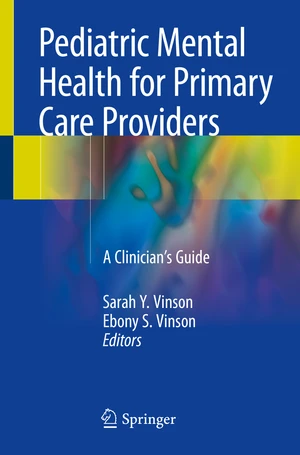The purpose of this book is to provide a childrenâs mental health resource tailored to the needs of physicians working with children. There are currently no such texts, despite the fact that there are patient care, healthcare systems, and workforce factors that indicate a strong need for such a resource. Approximately 1 in 5 children are diagnosed with a mental illness by the age of 18. Additionally, mental health conditions, including Attention Deficit Hyperactivity Disorder, are consistently among the most common chronic conditions in pediatric clinical populations. Delays in both diagnosis and treatment increase the morbidity associated with these conditions. These delays expose the child to negative ramifications of his/her illness and can impact rates of poor academic performance, substance use disorders and criminal justice system involvement â potentially impacting long-term life trajectories. Early identification of mental illness and appropriate intervention is critical to the healthy development of youth, though physicians in primary care and pediatrics are seldom trained to detect and treat such illnesses. The importance of recognizing mental illness is reflected in practice guidelines for pediatric primary care providers as well as in how service delivery is being structured, but this does not offer in-depth clinical guidelines. Additionally, integrated care and medical home models include mental health as key components, though yet again physicians are often not trained to work with these models. While clearly indicated clinically, these requirements do not come with significant increases in reimbursement and are added to an already demanding schedule. Increasingly, providers are also expected to use evidence based screening instruments without exposure to this body of literature. Some guidance on using those instruments in context will help them to use those tools more effectively. Finally, primary care providers and even some adult psychiatrists and psychologists are operating in a healthcare system with a severe, nationwide shortage of child and adolescent psychiatrists and mental healthcare providers. While a text certainly cannot single-handedly compensate for such a workforce shortage, it could potentially help to mitigate the negative impact on patients by facilitating early identification and treatment in the primary care setting. Additionally, with more effective treatment in pediatric settings, less complex cases may be addressed before specialty care is needed, and the expertise of child and adolescent psychiatrists can be more effectively used for more complex cases. Pediatric Psychiatry in Primary Care is the ultimate resource for clinicians working with children, including pediatricians, family physicians, general psychiatrists, psychologists, early career child psychiatrists, social workers, nurses, school counselors, and all clinical professionals who may encounter children struggling with psychiatric disorders.
Price history
Oct 2, 2022
€87.18

